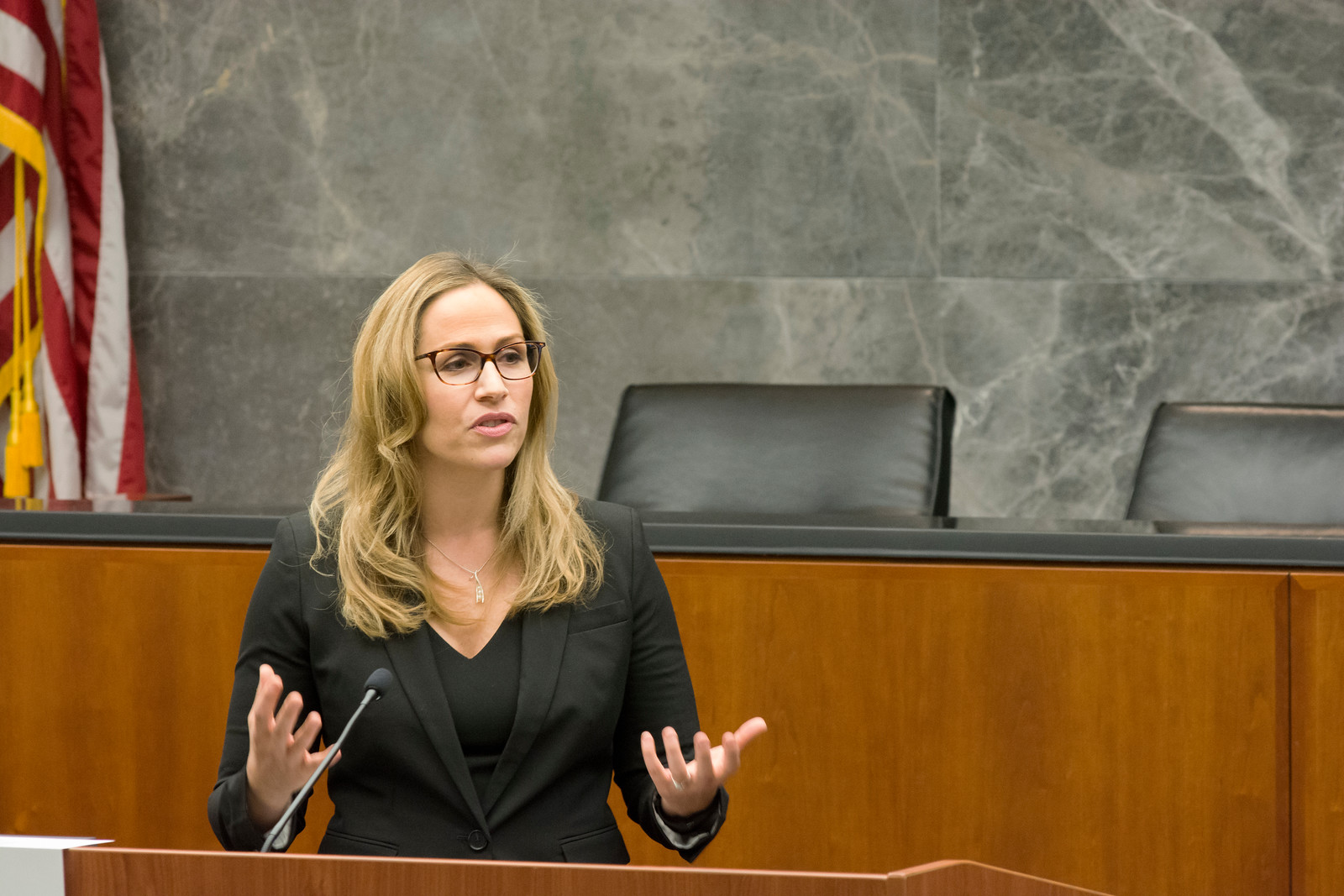[video:https://www.youtube.com/watch?v=u9dXoJxbKFo width:560 height:315 align:center lightbox_title:USTDA and GW Law School Partner for Global Procurement Initiative]
With the goal of reducing corruption in government procurement systems, the United States Trade and Development Agency (USTDA) launched its Global Procurement Initiative (GPI) in 2013. GW Law’s Procurement Law program partners with USTDA on the GPI by delivering training and capacity building services designed to educate public officials in emerging markets about strategies for establishing procurement practices and policies that integrate life-cycle cost analysis and “best value” determination in a fair, transparent manner.
“‘Best value’ includes looking at a potential vendor or contractor’s past performance, technical specifications, experience, quality of goods and services, innovation and other factors,” said Jessica Tillipman, Assistant Dean for Government Procurement Law Studies. According to Dean Tillipman, the best value concept can serve to reduce corruption in government procurement.
The Biden-Harris Administration has made fighting corruption a national security priority, beginning with the release of its anti-corruption agenda in June 2021. In December, the Administration released its roadmap for fighting corruption, Strategy on Countering Corruption, saying in the strategy’s introduction, “When government officials abuse public power for private gain, they do more than simply appropriate illicit wealth. Corruption robs citizens of equal access to vital services, denying the right to quality healthcare, public safety, and education.” The strategy will take center stage during President Biden’s Summit for Democracy.
In an article analyzing the Administration’s anti-corruption agenda, the Center for Strategic & International Studies (CSIS), touts the partnership between GW Law and USTDA through the GPI. The article, “Anti-corruption as a National Security Priority: Planning the Development Response,” explains that the Administration’s G7 Build Back Better World (B3W) initiative will focus on “building coherence across strategic efforts to decrease corruption in national procurement systems.” As the Administration focuses on fighting corruption, the article cautions, it should continue to rely on the capacity building work that has already been successfully executed through the GPI’s training program.
“The GPI is successful because it brings to light the lifecycle costs of a project, not just initial costs, and thereby elevates the inherent link between quality infrastructure and sound procurement practices,” said Kristen Cordell, CSIS Adjunct Fellow (Non-resident), Project on Prosperity and Development.
The GPI trainings led by GW Law faculty have engaged USTDA partner countries that include Botswana, Colombia, Dominican Republic, and Mexico, and tackle a wide variety of procurement related issues tailored to the partner’s particular needs.
"I've taught all over the world on government procurement law, and I have to say that USTDA's program is unique. It brings to bear a very diverse set of experts to focus on one country and its needs in procurement—a coordinated effort that really stands out,” said Professor Christopher R. Yukins. “That unique approach has made it much easier, for example, to deliver integrated training on vital issues, like how to address the types of corruption that are so often pervasive in public procurement.” Professor Yukins is the Lynn David Research Professor in Government Procurement Law & Co-Director, Government Procurement Law Program at GW Law.
“The partnership between USTDA and GW Law was a match made in heaven,” said Professor Steven L. Schooner, Nash & Cibinic Professor of Government Procurement Law.
“The GPI opens the door for us to engage with government officials and policymakers abroad and discuss strategies for value-based decision-making as they reform and evolve their public procurement regimes,” said Professor Schooner. “At the same time, we are constantly learning from others, which enriches everything we do, by giving us important insights into how other countries address the same problems we struggle with. And, of course, it broadens and diversifies and energizes the global public procurement community, of which we're proud to be a part.” Professor Schooner has traveled with the USTDA team to Brazil, India, Mexico, Panama, and Romania.
For GW Law students, the partnership has resulted in exciting new opportunities by opening doors to employment and internships with global organizations.
“The partnership spreads our global reach,” said Dean Tillipman. “We’re considered the best government procurement law program in the country, arguably in the world, and the program expands our presence globally. We have had students who have come for our degree programs, learned the best practices from the U.S. procurement system, and then reformed procurement practices in their own countries.”


